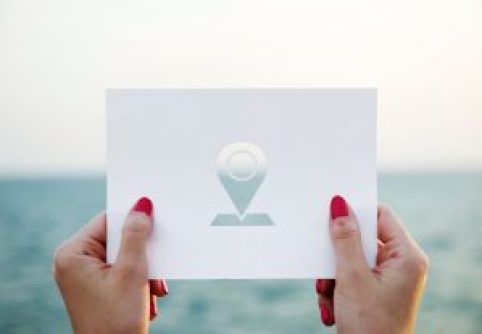
Obviously, Facebook is the biggest social media network worldwide. It is a place where connection with our family, friends and loved ones has been better and more interesting -by sharing photographs, stories, and life updates all in one convenient.
Unfortunately, as the platform grew in popularity, there were a number of potential risks. These often-overlooked points of concern may open the door for child predators, con artists, and identity thieves, or they may tarnish your reputation online threatening future relationships or employment opportunities. While there is no social media platform free from risk, recognizing and understanding these points will empower you to take the necessary steps to protect yourself.
1: Photographs of Children

Image: Pixabay
You should think twice before you post a photo of a children- whether they are your children or other kids. First of all, children are too young to consent to their photos being made in public. Secondly, even someone you might never expect might be a child pedator; by sharing photographs of children, you might risk them falling into the hands of child pedators. At the same time, every parent has different viewpoint on sharing their kids’ photograph online. So be sure to consider the views of other family members before sharing children’s group photographs, such as a birthday party or school trip.
2: Where Your Child Attends School
We hate to think that our children’s schools can be anything but a safe area; but the truth is that the world outside is: creepy. If you want to share pictures of your children in class or in the school garden, be absolutely sure that you keep the features of the school or the name anonymous.
3: Drunk Photographs
Today social media is also one of the first places that potential employers look. If your profile is full of random drunken photos, parties you’ve attended or stupid stunts that you have pulled it will paint a less than responsible picture of who you are.
4: Friends You Don’t Know
For some people, Facebook has became a place where it is about how many friends one could accumulate rather than connect with those that they actually know. The danger with friend collecting is that you don’t’ know who is on the other side of that computer. Accepting that random friend request may actually be putting yourself at risk.
5: Photos Of Children In Dangerous Situations
Parents feel that it is cute to share their photos with their bottle of wine in their children’s hands; or take a selfie with the child on the lap while driving a car. These photographs may seem harmless; but parents can make it clear to online criticism and negative reactions. People can even tell social services to get these children.
6: Your Phone Number:
Sometimes just pressing on a button on Facebook might share your phone number to public. In our highly technology driven world, your phone number can actually someone with a great deal of information. Not only are you making it easier for a con artist to steal your information, but consider this for a moment – would you walk down the street handing out your phone number to everyone you met?
7: Your Birthday:
It might feel great toreceive lots of messages on your birthday, as Facebook reminds everyone that it’s your big day. However, by putting your birthday out there publicly you are actually making it easier for those looking to steal your identity by providing them with key information.
8: Your Location
This simple setting on Facebook might come out with a serious consequence. When you are out in a night bar and you share this information with everyone on Facebook, it means that you have told that your house is empty, providing a window of opportunity for those who may wish to break in.
9: Your Holiday Plans
It can be really exciting to finally get that boarding pass for your next flight or ticket for your cross-country train trip, but sharing that information on social media is once again equal to inviting potential robbers and predators to visit your home.
10: Your Credit or Debit Card Information
If you are making a payment online, such as purchasing Facebook Ad space, make sure that you go back and remove your card information afterward. This information, when stored online, is available to be hacked.

















